Picture this: it’s Monday morning, you’re scrambling to pack lunch, and your fridge looks like a veggie crime scene. Sound familiar? Now imagine opening your fridge to find neatly stacked containers, each brimming with delicious, ready-to-eat meals you prepped over the weekend. Blissful, right? That’s the magic of vegetarian meal prep.
But wait—it’s not just about convenience. Prepping your meals ahead of time can save you cash, boost your health, and make your weekday dinners feel like a five-star event (minus the stress). Whether you’re a kitchen newbie or a seasoned chef, there’s a method to this madness, and trust me, it’s simpler than you think.
Stick around, because we’re diving into meal-prep benefits that’ll make you wonder why you didn’t start sooner, foolproof methods to keep your meals fresh, and expert tips to elevate your prep game. Ready to conquer the kitchen chaos and make life a whole lot tastier? Let’s get started!
Key Takeaways:
- Vegetarian meal prep is a game-changer for saving time, reducing food waste, and ensuring balanced nutrition throughout the week.
- Key ingredients like grains, proteins, vegetables, and flavor boosters are essential for a successful prep.
- Essential tools like mason jars, reusable containers, and a sharp knife make meal prep easier and more organized.
- Try versatile vegetarian recipes like grain bowls, wraps, and mason jar noodle soups to keep things exciting and satisfying.
- Planning your meals ahead of time ensures you can enjoy a variety of healthy, delicious, and stress-free meals all week long.
Understanding Vegetarian Meal Prep
Meal prep—sounds fancy, doesn’t it? But really, it’s just a clever way of saying, “I’m getting my future self organized and well-fed.” Vegetarian meal prep takes it one step further by focusing on plant-based meals that are as nourishing as they are delicious.
What is Vegetarian Meal Prep?
Think of vegetarian meal prep as a little gift you give your busy self. It’s the process of planning, prepping, and sometimes even cooking your meals ahead of time, so you’re never left staring into the fridge wondering what to eat.
This isn’t about spending hours chained to the stove. Nope! It’s about making your kitchen time smarter, not harder. Whether you’re chopping veggies, cooking grains in bulk, or pre-assembling colorful salads in jars, the goal is to set yourself up for easy, stress-free meals all week long.
So, if the idea of grabbing a ready-made veggie wrap or noodle bowl instead of ordering takeout sounds good, welcome to the world of vegetarian meal prep!
Benefits of Meal Prepping for a Vegetarian Diet
Why should you bother with meal prep? Oh, let me count the ways!
- Saving Time and Money
- No more dashing to the store three times a week for “just one more thing.”
- Cooking in bulk means fewer takeout splurges (and let’s face it, fewer regrets).
- Streamlined grocery shopping keeps you focused—and your wallet happy.
- Reducing Food Waste
- Ever find a sad, wilted zucchini in your crisper? Meal prep to the rescue!
- Prepping helps you use up everything you buy, so nothing gets left behind.
- It’s good for your conscience and the planet.
- Ensuring Balanced Nutrition
- When you prep ahead, you control what goes on your plate—hello, healthy choices!
- It’s easier to include a mix of proteins, carbs, and veggies without last-minute panic.
- Forget skipping meals; your future self will thank you for being so thoughtful.
Meal prepping isn’t just a kitchen trend—it’s your key to a week filled with delicious, stress-free vegetarian meals. So why not give it a try? Your inner foodie is already excited!
Key Components of a Successful Vegetarian Meal Prep
Let’s talk about what makes vegetarian meal prep a slam dunk. Spoiler: it’s all about having the right ingredients, tools, and a pinch of meal-planning wizardry. Ready to become a prep pro? Let’s dig in!
Essential Ingredients for Meal Prep
Your meal prep success starts with a well-stocked kitchen. Think of these as your meal-prep MVPs—no team is complete without them:
- Grains:
- Rice, quinoa, pasta—these are the foundation of hearty, satisfying meals.
- Pro tip: Cook a big batch and use it throughout the week in bowls, stir-fries, or wraps.
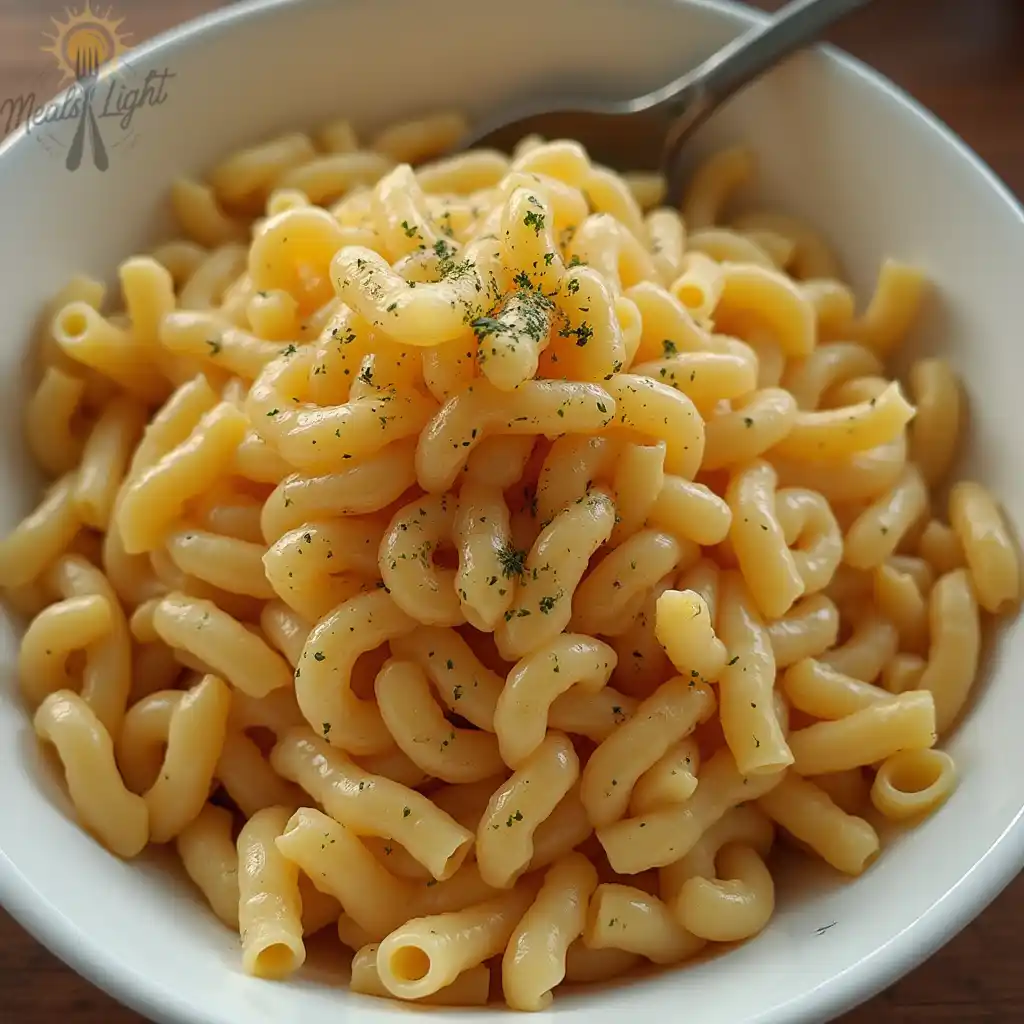
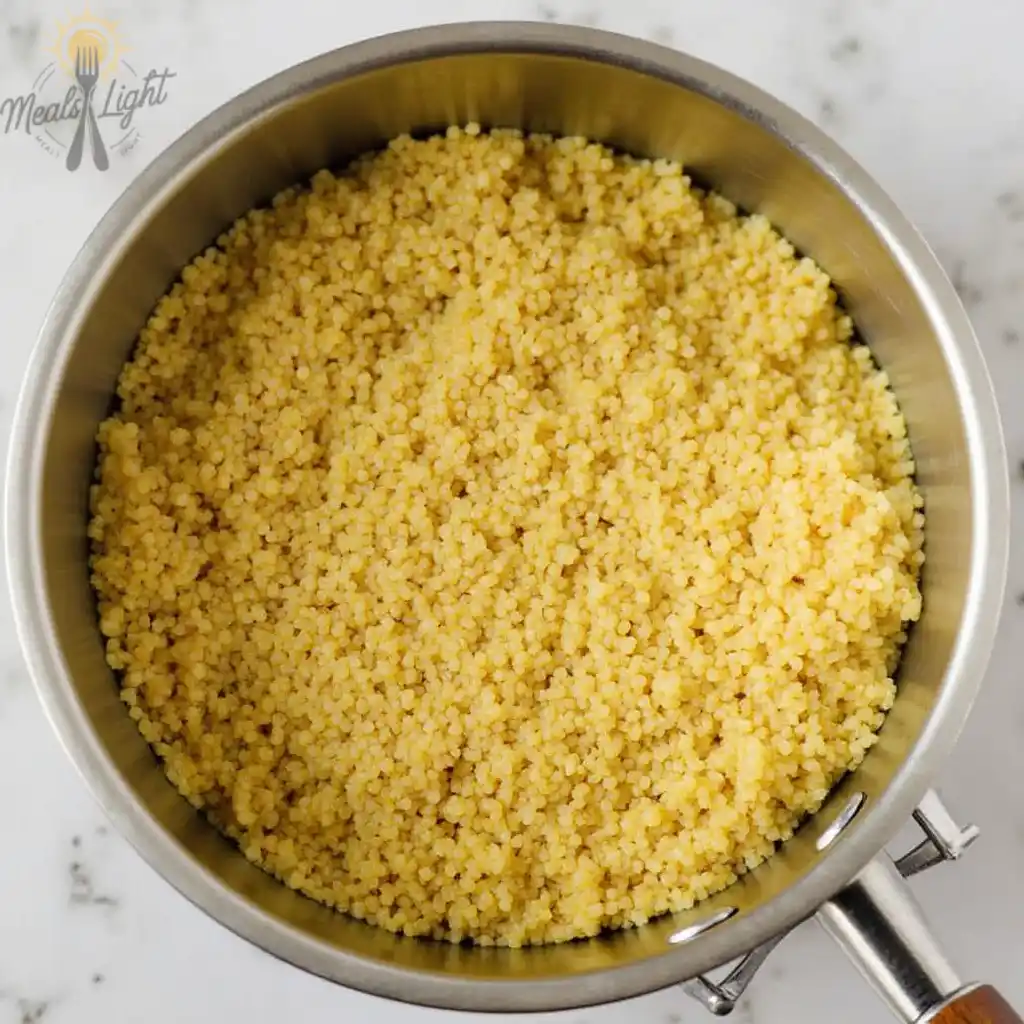
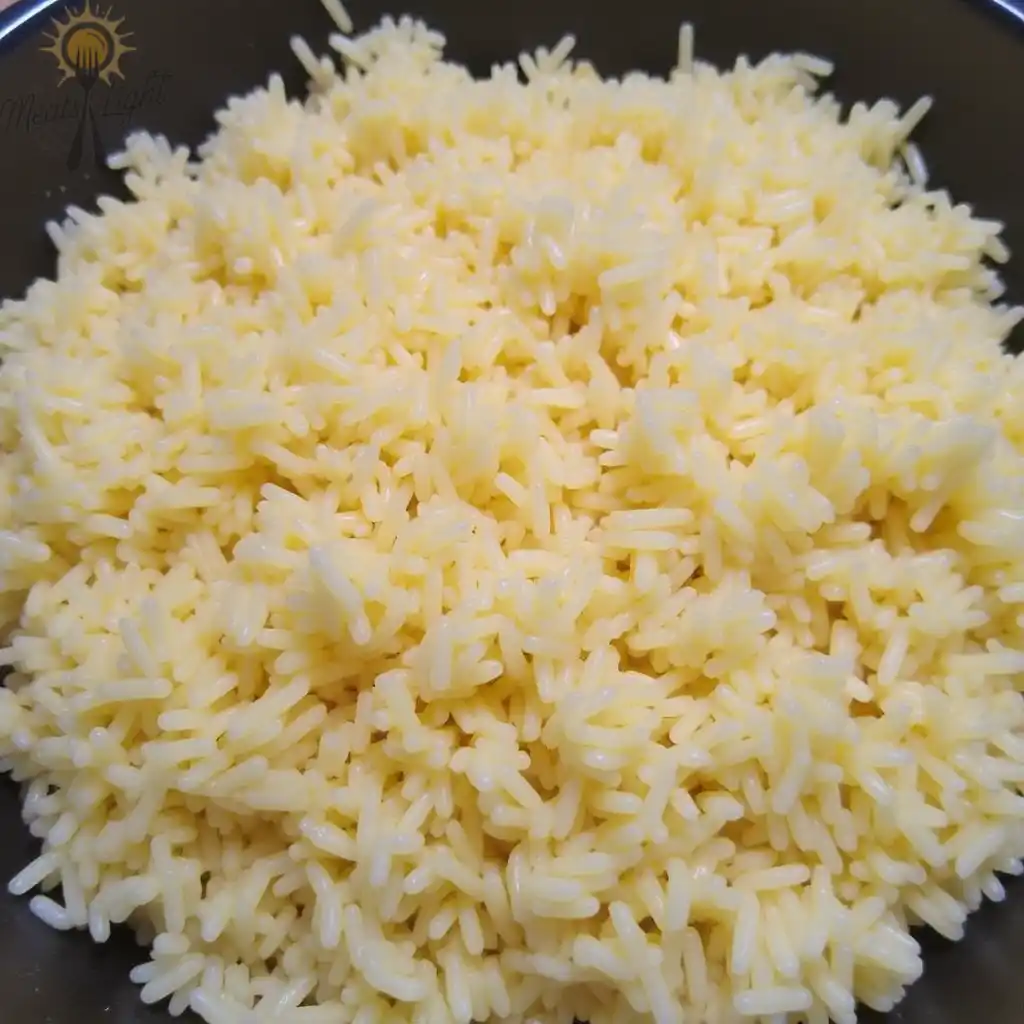
- Proteins:
- Say hello to plant-based powerhouses like tofu, tempeh, and lentils.
- They’re versatile, filling, and oh-so-good for you.
- Vegetables:
- Seasonal veggies for freshness, frozen ones for convenience.
- Chop them up and roast, steam, or sauté them for easy additions to any dish.
- Flavor Boosters:
- Spices, herbs, and dressings bring your meals to life.
- Think garlic, curry powder, tahini, or a good ol’ drizzle of balsamic vinegar.
With these in your kitchen arsenal, your taste buds will never be bored.
Must-Have Equipment for Meal Prep Success
You don’t need a chef’s kitchen to rock meal prep, but a few tools can make your life so much easier:
- Mason Jars and Reusable Containers:
- These are perfect for storing salads, soups, and even overnight oats.
- Bonus: They make your fridge look super organized (Instagram-worthy, even).
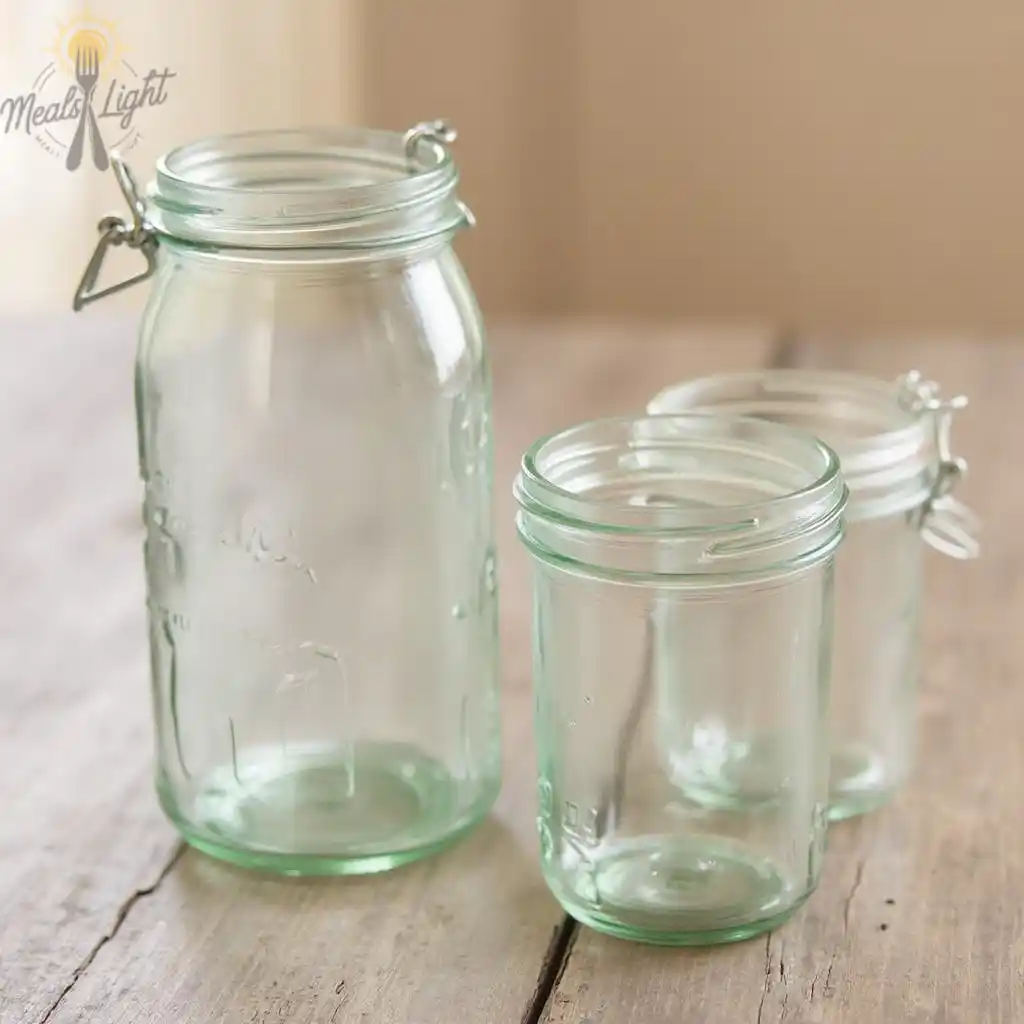

- Kitchen Essentials:
- A sharp knife and a sturdy cutting board are non-negotiable for chopping all those veggies.
- A blender can be your best friend for soups, sauces, and smoothies.
- Sheet Pans and Mixing Bowls:
- Sheet pans for roasting all the veggies in one go.
- Mixing bowls for tossing together salads or grain bowls.
Trust me, with these tools, meal prep will feel less like a chore and more like an adventure.
Tips for Creating Balanced Vegetarian Meals
Meal prep isn’t just about making food ahead of time—it’s about creating meals you’ll actually want to eat. Here’s how to keep things balanced and satisfying:
- Divide Your Plate:
- Half veggies, a quarter grains, and a quarter protein is a great rule of thumb.
- Mix Textures:
- Pair crunchy (roasted chickpeas) with creamy (mashed sweet potatoes) for a mouthwatering experience.
- Don’t Forget the Fat:
- Add healthy fats like avocado, nuts, or a drizzle of olive oil to make your meals more filling.
- Switch It Up:
- Variety is the spice of life! Alternate between cuisines—Mediterranean one day, Asian-inspired the next.
Follow these tips, and your meals will not only fuel you but also bring some joy to your taste buds. Let’s make your prep game legendary!
Vegetarian Meal Prep Recipes You’ll Love
Ready to jazz up your meal prep with some fun, flavorful recipes? These vegetarian ideas are as easy to make as they are delicious. Whether you’re a fan of soups, bowls, or wraps, we’ve got you covered. Let’s roll up our sleeves and get cooking!
Mason Jar Noodle Soups
Who needs instant noodles when you can make your own, healthier version in a jar? These soups are a warm hug in a bowl (or a jar!)—perfect for quick lunches or cozy dinners.
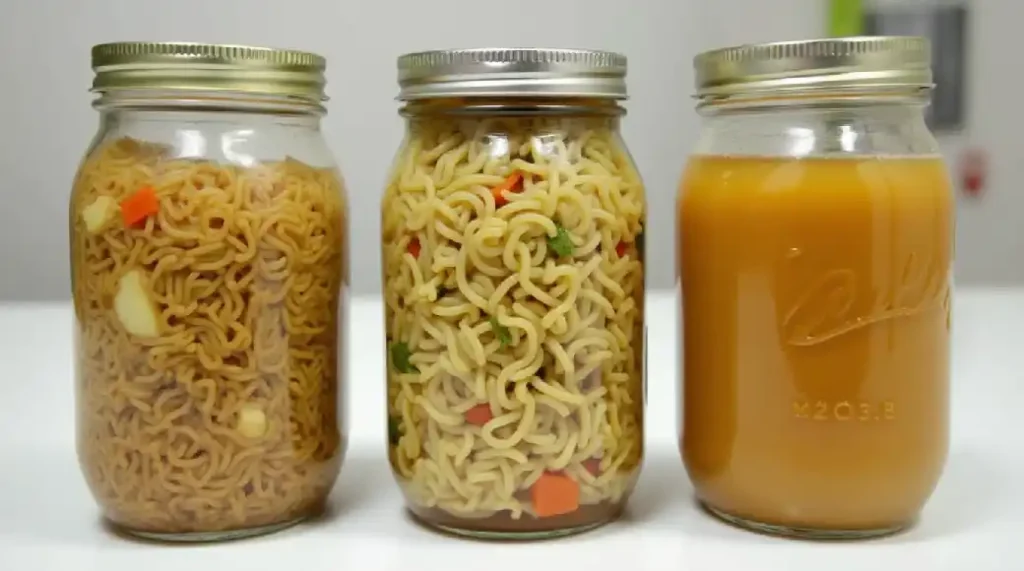
- Ingredients Breakdown:
- Base: Cooked noodles (rice noodles, soba, or even spaghetti)
- Veggies: Shredded carrots, snap peas, spinach, or mushrooms
- Protein: Tofu cubes or a sprinkle of edamame
- Flavor Boosters: Soy sauce, miso paste, ginger, garlic, and chili flakes
- Step-by-Step Preparation:
- Layer ingredients in your mason jar: start with flavor boosters, add protein, then veggies, and finish with noodles.
- When it’s mealtime, pour in hot water, let it sit for a few minutes, and give it a good stir.
- Ta-da! A homemade noodle soup in minutes.
- Storage Tips and Variations:
- Store jars in the fridge for up to 4 days.
- Mix it up with different veggies and sauces—Thai-inspired coconut curry, anyone?
Grain Bowl Recipes for the Week
Grain bowls are like blank canvases for your creativity. Start with a base, pile on the toppings, and voilà—you’ve got yourself a masterpiece.
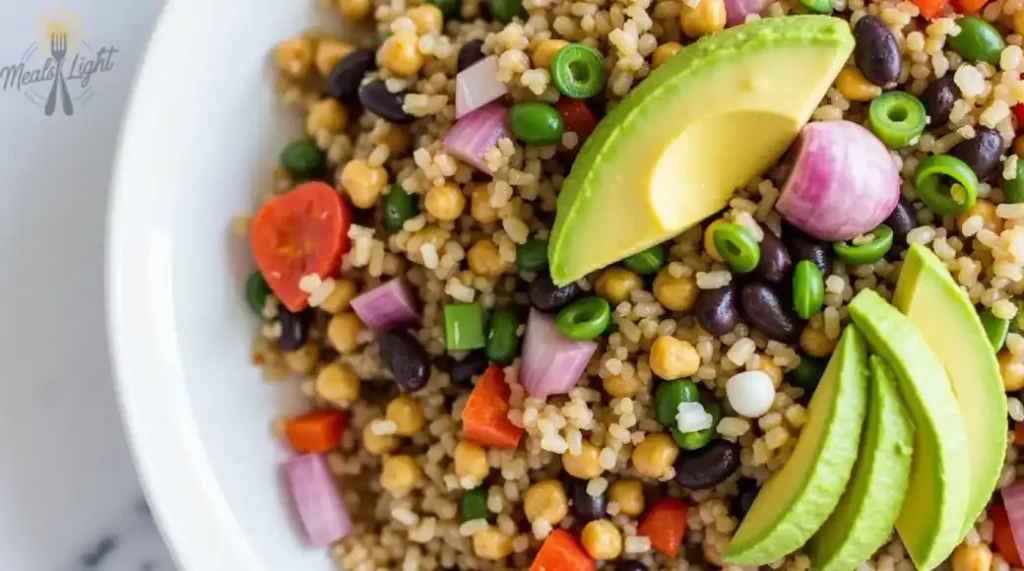
- Mix-and-Match Options:
- Grains: Brown rice, quinoa, farro, or even cauliflower rice.
- Proteins: Chickpeas, black beans, baked tofu, or tempeh.
- Toppings: Roasted veggies, pickled onions, avocado slices, or nuts.
- Flavor Combinations to Try:
- Mediterranean: Quinoa, roasted red peppers, olives, hummus, and a sprinkle of feta.
- Asian-Inspired: Brown rice, edamame, sesame tofu, shredded carrots, and soy-ginger dressing.
- Southwest: Farro, black beans, roasted sweet potatoes, avocado, and a dollop of salsa.
Prep your components ahead of time, and assembling these bowls will be a breeze. Plus, they’re endlessly customizable—no two bowls have to be the same!
Quick and Easy Vegetarian Wraps
Wraps are the ultimate grab-and-go meal. They’re portable, mess-free, and completely satisfying. Plus, the filling options are endless!
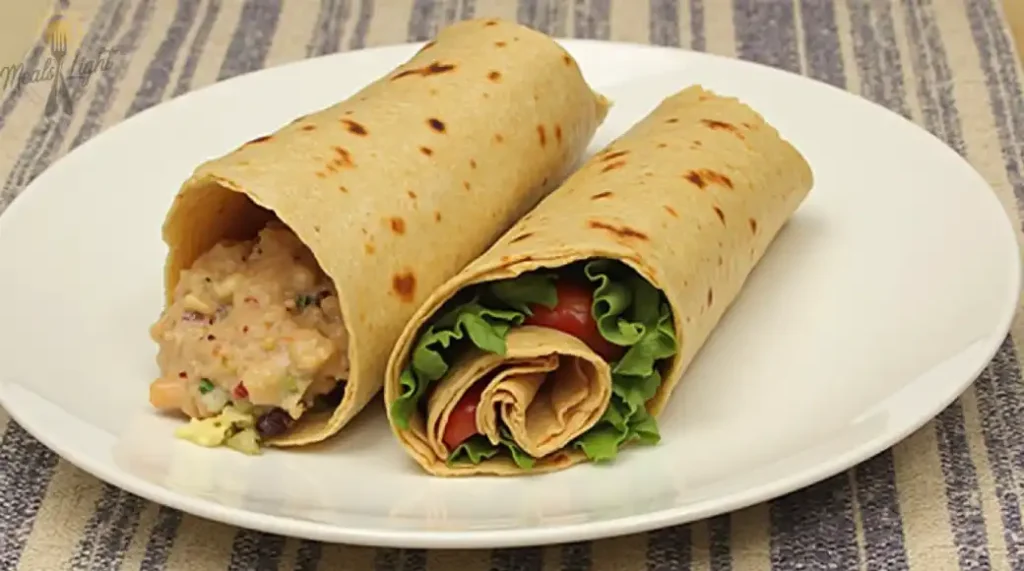
- Filling Ideas:
- Beans: Black beans, chickpeas, or refried beans.
- Hummus: A flavorful spread to hold everything together.
- Veggies: Sliced cucumbers, shredded lettuce, roasted veggies, or sprouts.
- Make-Ahead Instructions:
- Lay out your wrap (tortilla, lavash, or flatbread).
- Spread on your base (hummus or guacamole).
- Add fillings, keeping them in the center for easy rolling.
- Roll tightly, wrap in foil or parchment, and store in the fridge for up to 3 days.
Pro tip: Keep wet ingredients like tomatoes in a separate container and add them right before eating to avoid soggy wraps.
Planning Your Vegetarian Meal Prep Week
Planning ahead is the key to a stress-free, healthy week of meals, and that starts with setting clear goals and crafting a strategic meal plan. Here’s how to make sure your vegetarian meal prep is efficient, balanced, and ready to tackle your week.
Setting Your Meal Prep Goals
- Time-Saving Objectives: One of the greatest benefits of meal prepping is the time it saves you throughout the week. The idea is to prep in bulk so that you’re not spending precious time each day cooking. Start by focusing on what you can cook in large batches, like grains or legumes, and find recipes that can be easily reheated. This way, your meal prep is truly working to give you time back in your day.
- Dietary Needs and Preferences: Meal prep isn’t just about convenience—it’s also about aligning your meals with your dietary goals and preferences. Are you looking to increase protein intake? Or maybe you’re focusing on more plant-based, fiber-rich meals? Identify your nutritional needs and tailor your meal prep accordingly. This will help you feel your best and keep your meals exciting throughout the week.
Crafting a Weekly Vegetarian Meal Plan
- Breakfast Ideas: Overnight Oats, Smoothies
Start your day off right with easy and nutritious options like overnight oats or smoothies. Both can be prepped ahead of time and customized with your favorite toppings. Overnight oats can be made in individual jars and stored in the fridge for several days, while smoothies can be prepared in freezer bags—just blend when you’re ready to go. - Lunch Suggestions: Soups, Grain Bowls, Salads
For lunch, you can’t go wrong with hearty soups, vibrant grain bowls, or fresh salads. Soups like lentil or vegetable-based broths are perfect for making in bulk and can be easily reheated. Grain bowls, with bases like quinoa or brown rice, can be topped with a variety of proteins and roasted veggies, while salads can be prepped in jars to keep everything fresh until you’re ready to eat. - Dinner Inspirations: Stir-fries, Casseroles, Pasta
When it comes to dinner, stir-fries are a great option for quick, flavorful meals. You can prep veggies and proteins ahead of time and stir-fry them in minutes. Alternatively, casseroles can be made in advance and stored in the fridge or freezer for a comforting, ready-to-bake dinner. Pasta dishes like a hearty veggie lasagna or spaghetti with marinara sauce are also excellent options to prep for the week.
Creating a Comprehensive Shopping List
Now that you’ve planned your meals, it’s time to tackle the shopping list. Be sure to include all the fresh produce, grains, legumes, and proteins you’ll need. Make a list based on your meal plan and stick to it—this will help prevent unnecessary impulse buys and ensure you have everything you need. Consider buying in bulk to save both time and money, especially for staples like rice, beans, and oats.
By setting your meal prep goals, crafting a well-rounded plan, and organizing your shopping, you’ll have everything you need to breeze through a week of delicious, plant-based meals.
Frequently Asked Questions About Vegetarian Meal Prep
How to get enough protein on a vegetarian meal plan?
To get enough protein on a vegetarian meal plan, focus on incorporating a variety of plant-based protein sources like beans, lentils, tofu, tempeh, and quinoa. It’s important to include these in each meal to ensure adequate intake. Combining protein-rich foods throughout the day helps meet your nutritional needs.
What are good vegetarian protein sources?
Good vegetarian protein sources include legumes (such as beans and lentils), tofu, tempeh, quinoa, edamame, seitan, and dairy or dairy alternatives like Greek yogurt and cottage cheese. Nuts, seeds, and plant-based protein powders also provide substantial protein. These options can easily be incorporated into various meals for balance and variety.
How to add protein to vegetarian meals?
Good vegetarian protein sources include legumes (such as beans and lentils), tofu, tempeh, quinoa, edamame, seitan, and dairy or dairy alternatives like Greek yogurt and cottage cheese. Nuts, seeds, and plant-based protein powders also provide substantial protein. These options can easily be incorporated into various meals for balance and variety.
How to reach 100g of protein a day on a vegetarian diet?
To reach 100g of protein a day on a vegetarian diet, plan meals around protein-rich foods like lentils, chickpeas, quinoa, tofu, and edamame. Include protein at each meal and snack, such as adding Greek yogurt or nuts to your breakfast and having a protein-packed salad or grain bowl for lunch and dinner. Tracking your intake can help ensure you meet your daily goal.
What vegetarian combinations form a complete protein?
Complete proteins, which contain all nine essential amino acids, can be formed by combining certain plant-based foods. For example, pairing beans with rice or hummus with whole-grain pita creates a complete protein. Other combinations include peanut butter on whole-grain bread or lentils with quinoa.
Conclusion
In conclusion, vegetarian meal prep is a simple yet powerful way to save time, eat healthier, and enjoy delicious meals throughout the week. By planning your meals, selecting the right protein sources, and using creative combinations, you can ensure a balanced and satisfying diet without the stress of last-minute cooking. Whether you’re a seasoned meal prepper or just starting out, these tips will help you stay organized, save money, and feel energized. So, go ahead—embrace the power of meal prep and make your week a whole lot tastier and more enjoyable!

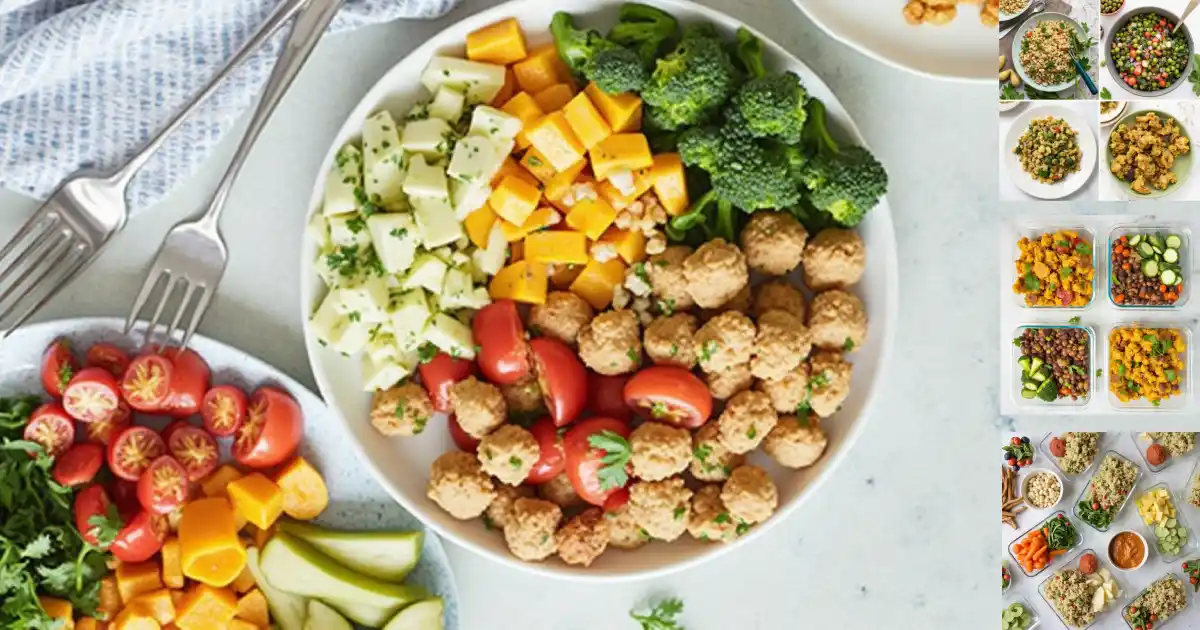
1 thought on “Vegetarian Meal Prep Ideas for a Healthier Week”